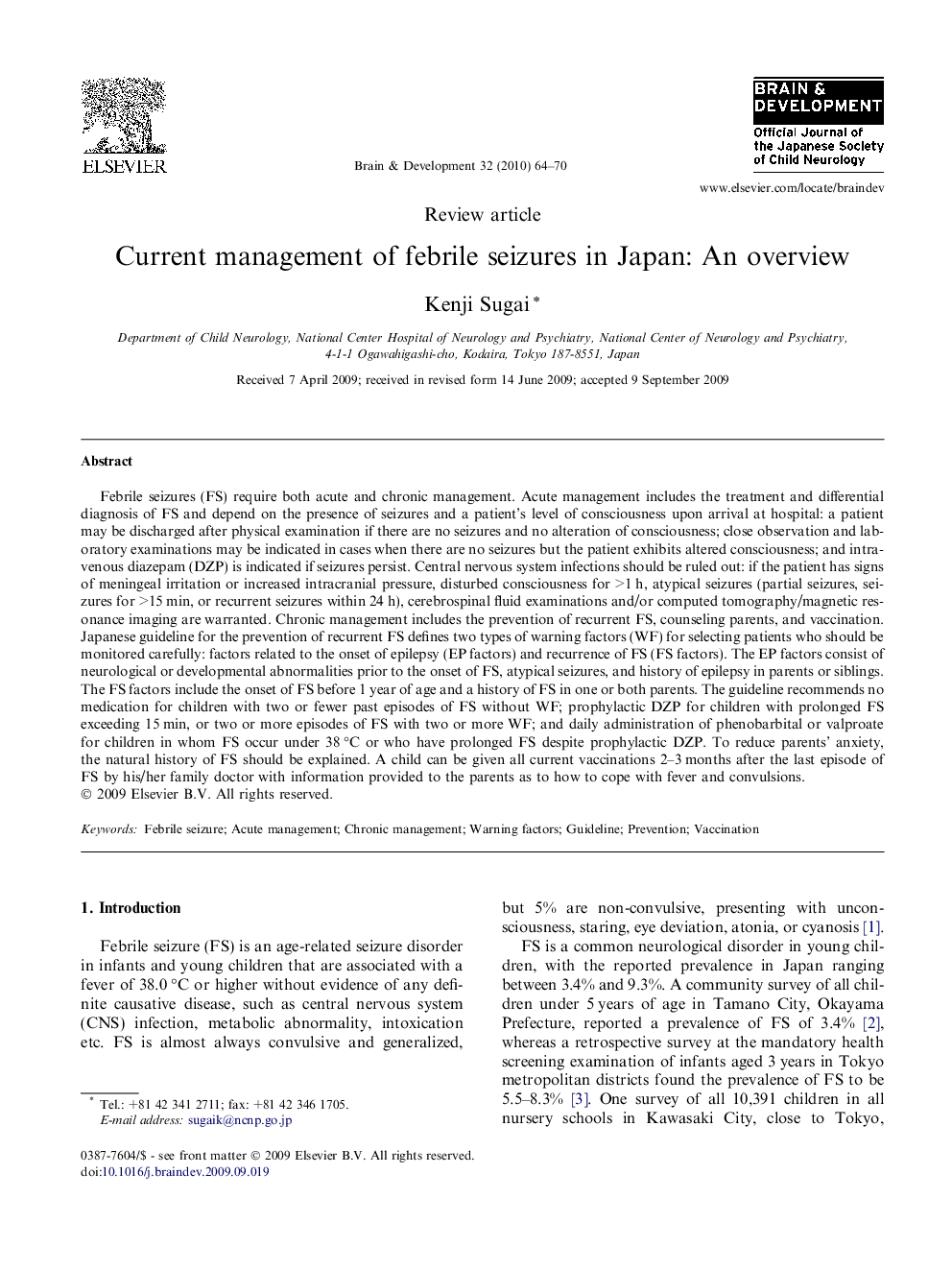| Article ID | Journal | Published Year | Pages | File Type |
|---|---|---|---|---|
| 3037943 | Brain and Development | 2010 | 7 Pages |
Febrile seizures (FS) require both acute and chronic management. Acute management includes the treatment and differential diagnosis of FS and depend on the presence of seizures and a patient’s level of consciousness upon arrival at hospital: a patient may be discharged after physical examination if there are no seizures and no alteration of consciousness; close observation and laboratory examinations may be indicated in cases when there are no seizures but the patient exhibits altered consciousness; and intravenous diazepam (DZP) is indicated if seizures persist. Central nervous system infections should be ruled out: if the patient has signs of meningeal irritation or increased intracranial pressure, disturbed consciousness for >1 h, atypical seizures (partial seizures, seizures for >15 min, or recurrent seizures within 24 h), cerebrospinal fluid examinations and/or computed tomography/magnetic resonance imaging are warranted. Chronic management includes the prevention of recurrent FS, counseling parents, and vaccination. Japanese guideline for the prevention of recurrent FS defines two types of warning factors (WF) for selecting patients who should be monitored carefully: factors related to the onset of epilepsy (EP factors) and recurrence of FS (FS factors). The EP factors consist of neurological or developmental abnormalities prior to the onset of FS, atypical seizures, and history of epilepsy in parents or siblings. The FS factors include the onset of FS before 1 year of age and a history of FS in one or both parents. The guideline recommends no medication for children with two or fewer past episodes of FS without WF; prophylactic DZP for children with prolonged FS exceeding 15 min, or two or more episodes of FS with two or more WF; and daily administration of phenobarbital or valproate for children in whom FS occur under 38 °C or who have prolonged FS despite prophylactic DZP. To reduce parents’ anxiety, the natural history of FS should be explained. A child can be given all current vaccinations 2–3 months after the last episode of FS by his/her family doctor with information provided to the parents as to how to cope with fever and convulsions.
